We have compiled a list of "12 Largest EV Battery Manufacturers in the World" to give our readers an idea about the industry.
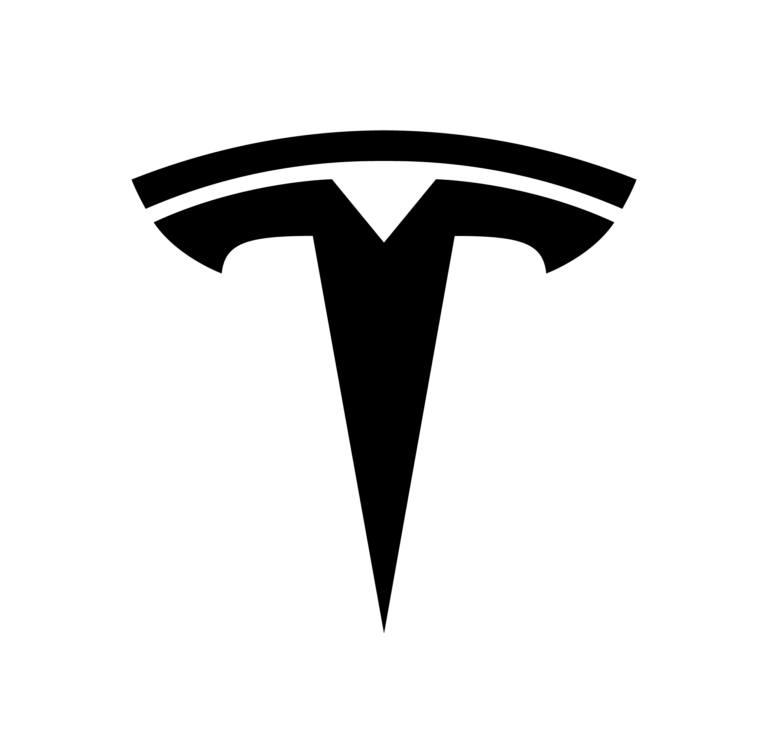
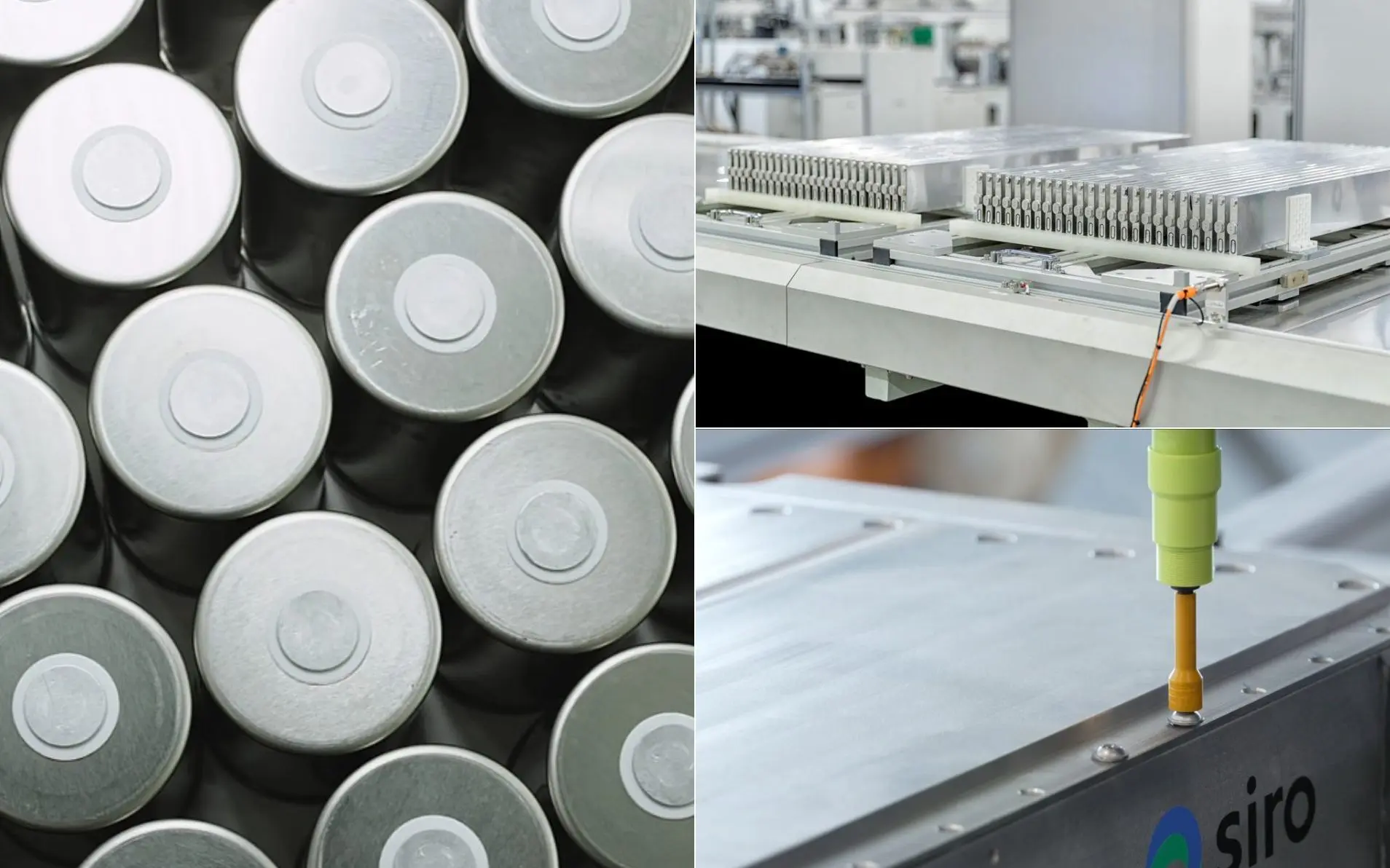
With a market share of 15% as of August 2022, electric vehicles are becoming a bigger part of our lives day by day. The ever-increasing demand for electric vehicles brings many new trends such as new energy-dense battery technologies and more efficient battery production methods. Since battery packs are the most expensive component of EVs, anything that might provide an advantage to battery manufacturers matters a lot. Therefore, there is a huge tendency to invest in this field lately.
To better understand the current situation in the EV battery manufacturing sector, we have compiled for you a list of “12 Largest EV Battery Manufacturers in the World”. CATL is the biggest lithium-ion battery manufacturer for electric vehicle. Alongside this Chinese conglomerate, South Korean chaebol LG’s battery spin-off LG Energy Solution, and Chinese automotive giant BYD‘s battery branch are at the top of our list. The list also includes companies such as Panasonic, SK On, Samsung SDI, CALB, Gotion High-Tech, SVOLT, Farasis, etc.
| Manufacturer | Founded in | Country of Origin | Production in 2022 (Jan-Oct) |
|---|---|---|---|
| CATL | 2011 | 🇨🇳 China | 137.7 GWh |
| LG Energy Solution | 1992 | 🇰🇷 South Korea | 53.7 GWh |
| BYD | 1995 | 🇨🇳 China | 51.5 GWh |
| Panasonic | 2012 | 🇯🇵 Japan | 30.8 GWh |
| SK On | 2021 | 🇰🇷 South Korea | 24.1 GWh |
| Samsung SDI | 1970 | 🇰🇷 South Korea | 18.9 GWh |
| CALB | 2015 | 🇨🇳 China | 16.3 GWh |
| Gotion High-Tech | 2006 | 🇨🇳 China | 11.3 GWh |
| Sunwoda | 2018 | 🇨🇳 China | 6.5 GWh |
| EVE Energy | 2001 | 🇨🇳 China | 5.1 GWh |
| SVOLT | 2018 | 🇨🇳 China | 5.05 GWh |
| Farasis | 2002 | 🇨🇳 China | 4.19 GWh |
| Northvolt* | 2015 | 🇸🇪 Sweden | <1.0 GWh |
*Northvolt is a special mention on our list, as it is the first European lithium-ion battery cell manufacturer.
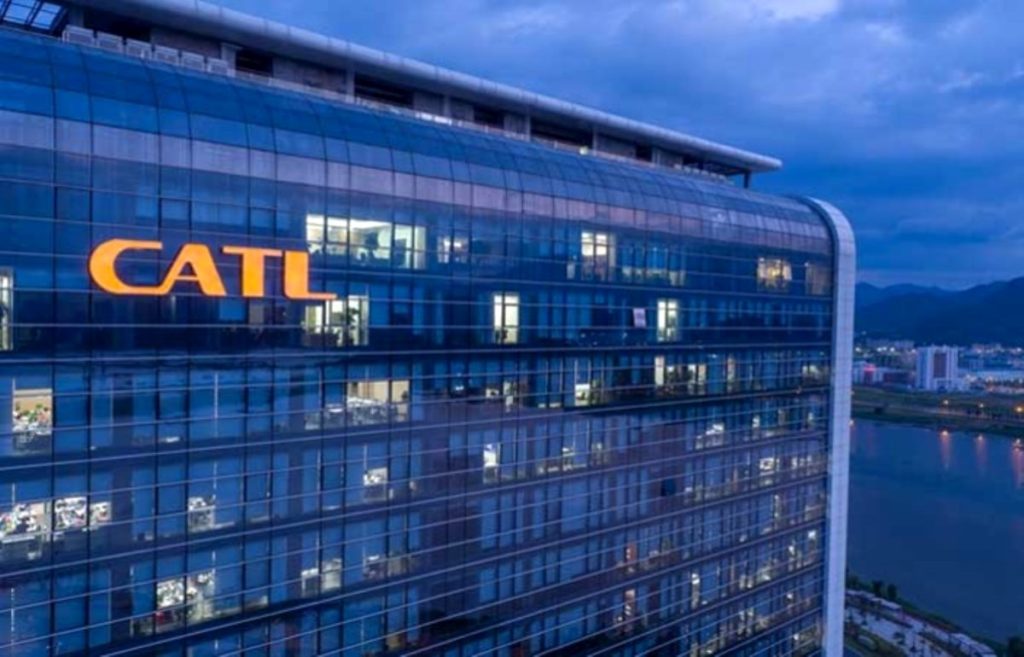
CATL (Contemporary Amperex Technology Co. Limited) is a Chinese battery manufacturer and technology company that is currently the world’s largest LFP battery cell manufacturer. Founded in 2011, the company primarily focuses on producing lithium-ion batteries for electric vehicles and energy storage systems, as well as battery management systems. CATL has joined the most famous EV manufacturer Tesla’s battery supply chain as well as many other manufacturers such as Mercedes-Benz, BMW, Ford, Toyota, Volkswagen, etc.
Headquartered in Ningde (Fujian Province), the company is the biggest lithium-ion battery manufacturer for EVs in the world with a market share of 32.6%, according to available data in 2021. Last year, it has produced 96.7 GWh of the global output of 296.8 GWh, up 167.5% yearly. The company aims to have a production capacity of more than 500 GWh by 2025, and more than 800 GWh by 2030.
Apart from its factories in China, CATL has a factory that has just been completed in Germany. Furthermore, the company recently announced that it will establish a factory in Hungary with an investment of nearly $7.5 billion. It is also known that the firm is keen to build a facility in the US and Mexico.
CATL, known as the pioneer of new technologies in the battery industry, will launch M3P batteries in 2023. Although there is no official confirmation about the metals within the battery, CEO Zeng Yuqun remarked that it will have a range of about 700 km. Since the M3P battery will remedy the low energy density —which is the biggest disadvantage of LFP batteries— while keeping production costs down, it is considered an important invention for the future of the EV industry.
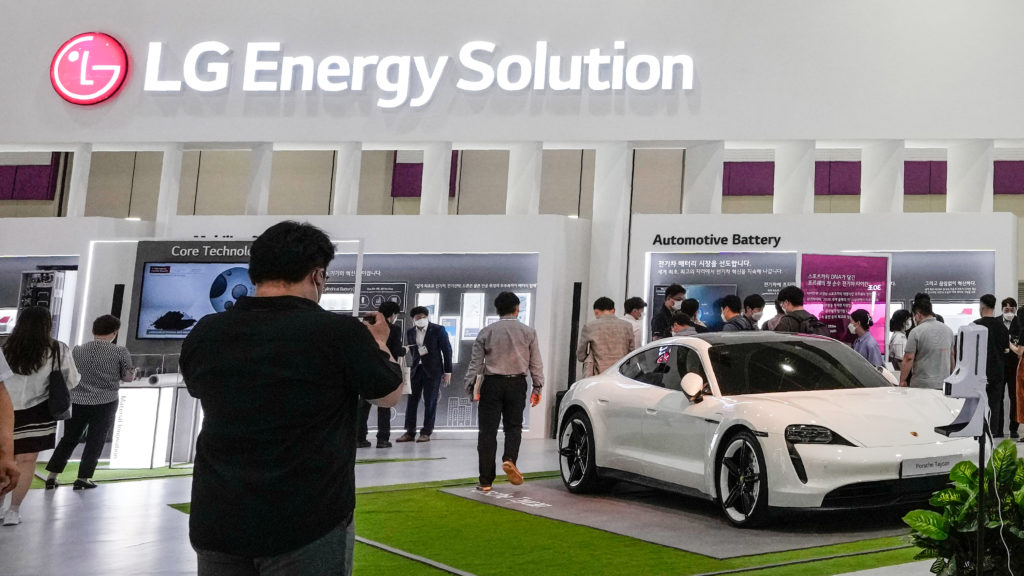
The foundations of LG Energy Solutions (formerly LG Chem), a subsidiary of the South Korean electronics giant LG, were laid in 1992 when the company started its R&D activities for lithium-ion batteries. The company, which has production sites in the United States, China, South Korea, Poland, and Indonesia, started mass production in 1999 and a breakthrough came with the deal to supply batteries for GM’s Volt in the late 2000s, one of the world’s first mass-produced passenger EVs.
LG Chem’s battery business officially became a separate company and changed its name to LG Energy Solution in December 2020 and its development was followed by the company’s public listing in 2022.
South Korean company is currently a supplier of various global EV makers such as GM, Ford, Chrysler, Audi, Renault, Volvo, and SAIC Motor. In 2021, LG Energy Solutions announced two MOUs with Stellantis and Hyundai for the joint production facilities. The last announcement about new investments has just come a month ago declares that there will be a new production facility with the partnership of Honda in the US with an investment of $4.4 billion.
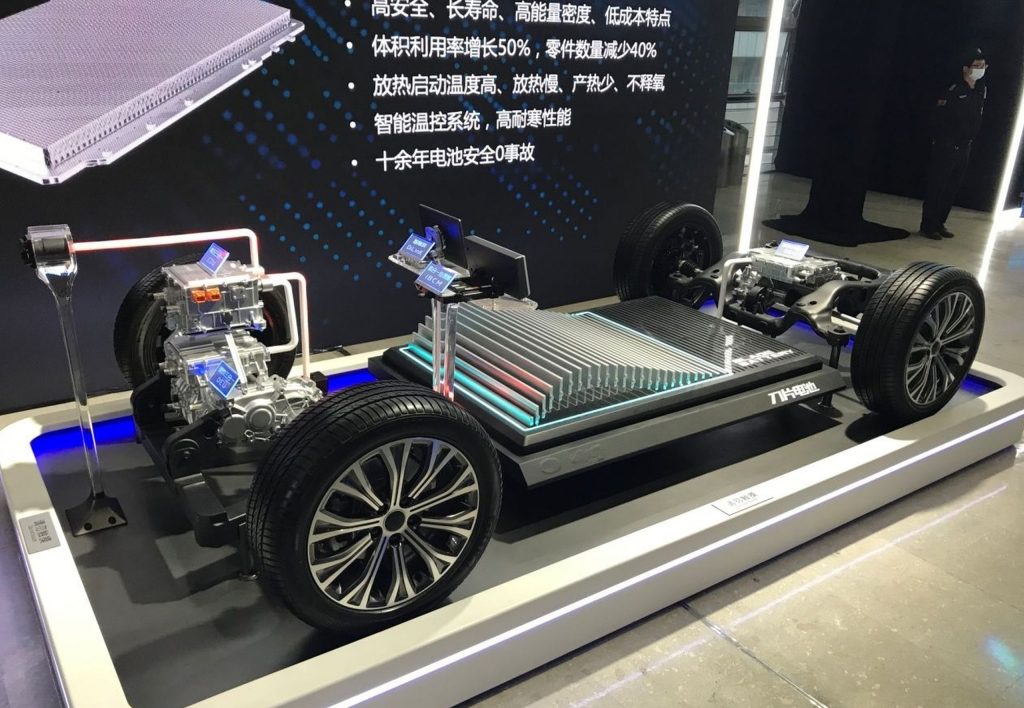
BYD was founded by Chinese entrepreneur Wang Chuanfu in 1995 as an advanced battery manufacturer and consumer electronics company. With more than 25 years of experience designing and building advanced battery systems, BYD has more than 15,000 patents thanks to its more than 20,000 engineers working on solely R&D.
The company has entered the automotive sector in 2003 and currently, it is the company that sells most EVs in China. Although most of its sales are realized in China, it also operates in Europe and America and one of the company’s shareholders is Berkshire Hathaway Holding, of which Warren Buffett is the CEO. BYD’s combination of battery and automotive experience brings a serious advantage to the company in terms of clean transportation.
With its 33 locations across the globe, the Chinese giant continues its investments. The company, which established a regional center in North America with a serious investment in 2020, declared that it will invest $4.2B to open both a 30 GWh battery and a lithium carbonate factory in Yichun, “Asia Capital of Lithium”.
Recently, BYD’s huge battery investments are paying off. It has become the newest battery cell supplier of the world’s biggest EV maker Tesla. Elon Musk’s company is going to start using LFP cells purchased from BYD in its vehicles soon. It was also reported earlier that Tesla will integrate BYD’s blade battery cells into a structural pack and assemble the latest version of Model Y.
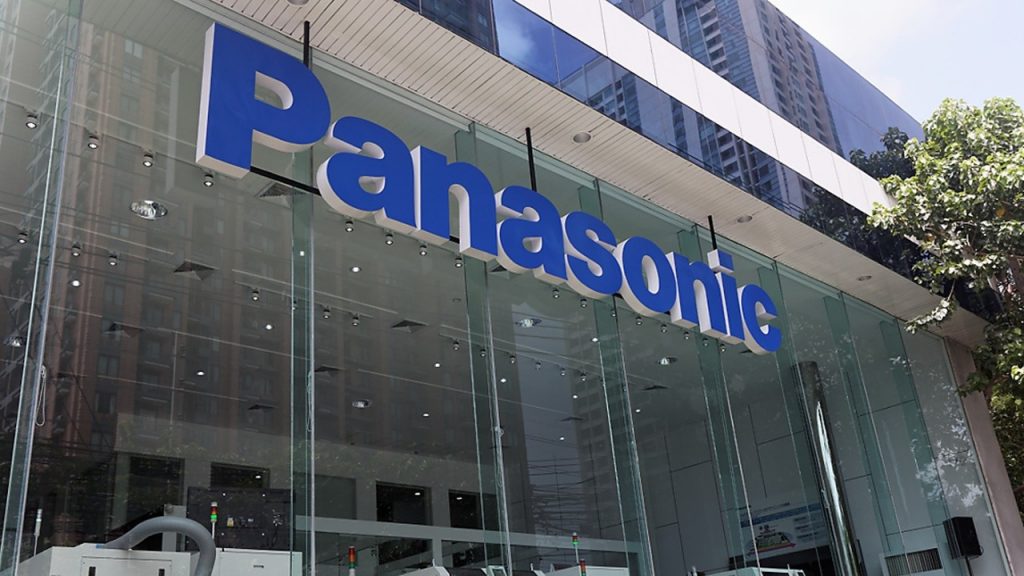
Part of a major Japanese multinational conglomerate corporation, namely Panasonic, Panasonic Energy’s business scope covers dry batteries supporting convenient, comfortable daily lives, as well as batteries supporting a broad range of social infrastructure and the automotive industry, including EVs.
In addition to supplying battery cells for hybrid, plug-in hybrid, and full-electric vehicle lines, Panasonic Energy also design, engineer, and manufacture complete battery systems to optimize safety and performance. Currently, the company is the world’s fourth-largest producer of EV batteries, behind CATL, BYD, and LG Energy Solution. It mostly supplies Tesla but has also established a joint venture with Toyota in 2020.
Panasonic is a financial and technological partner of Tesla’s Gigafactory 1 – Giga Nevada production facility, which is responsibe for the manufacturing of the 18650 and 2170 battery cells and some other EV parts for Tesla cars. The company also announced in July 2022 that it will establish a battery factory in Kansas with an investment of $4 billion. While Panasonic increases its investments in the battery field, CEO Yuki Kusumi said that Panasonic would prioritize developing the lithium-ion 4680 battery, which has better range thanks to greater energy density.
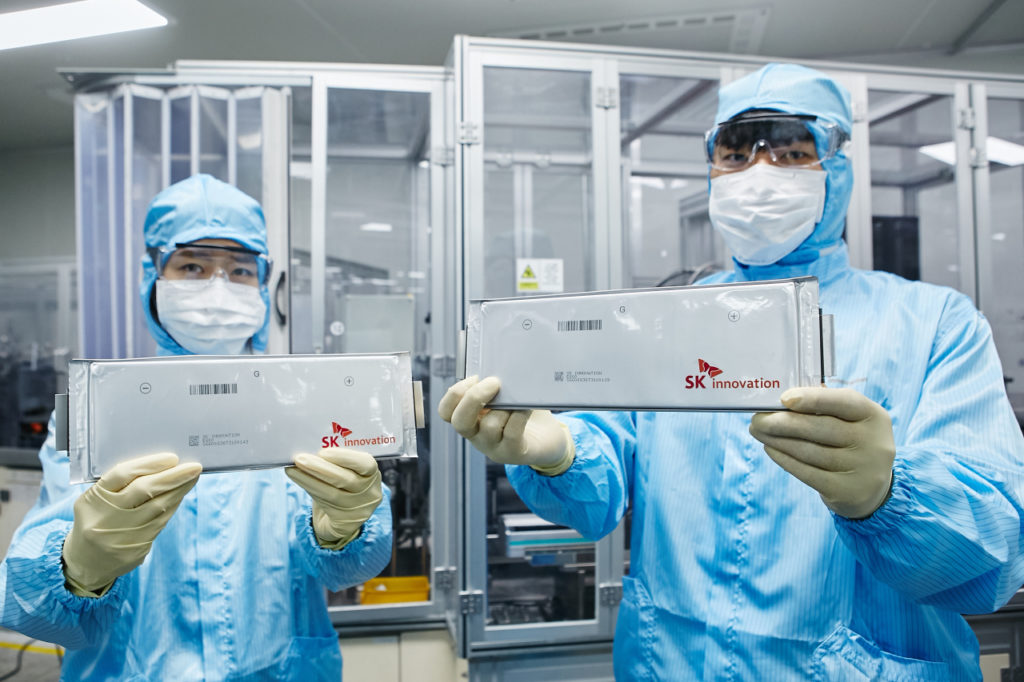
SK On was spun off as its own company in October 2021 from SK Innovation, a holding company for both traditional and alternative energy businesses under SK group, the second largest chaebol in South Korea. SK On is currently the fifth-largest supplier of EV batteries in the world with a production capacity of 13.2 GWh. (2021) The company’s annual battery sales hit $2.3 billion in 2021, up from $1.2 billion a year earlier and $530 million in 2019, when the company ranked as the ninth-largest battery maker. SK On’s customers include Ford, Volkswagen, Mercedes, Kia, BAIC Group, Hyundai, and XPENG.
The company has seven factories across Europe, China, and the US. SK On has two more plants scheduled to start operating in 2024, including one in Hungary, and another in China. It has also announced that there would be a joint venture with Ford for an EV battery factory in Turkey. For two other plants in China scheduled to start up by 2025, almost $3.5 billion has been set aside by the company.
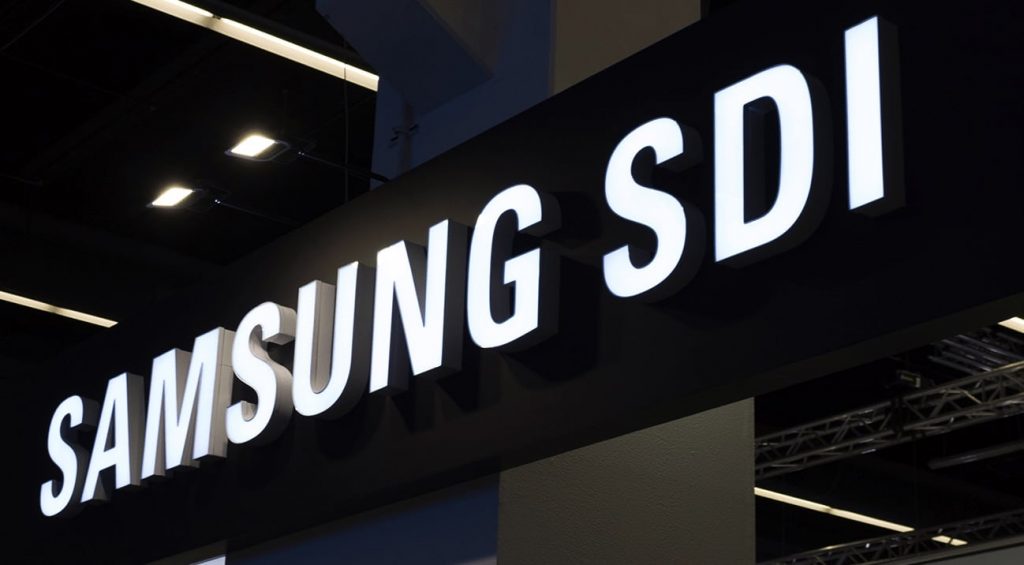
Since its foundation back in 1970, Samsung SDI has been producing and selling rechargeable batteries used for EVs, IT devices, and Energy Storage System (ESS) applications as well as materials for semiconductors and displays.
Headquartered in Yongin, Gyeonggi-do, South Korea; the company defines its mission as to build new growth drivers through transformation and innovation for emerging as a ‘Creative Energy and Materials Solution Leader’. Samsung SDI’s global network consists of 27 locations in total, including the Headquarters, the R&D Center, production facilities, and sales bases throughout America, Europe, and Asia-Pacific.
South Korean tech giant, which established a pilot production line to manufacture 4680-type cylindrical batteries this year, is expected to start producing LFP batteries before the end of 2022 in addition to the NMC batteries it already produces.
In October 2021, Samsung SDI announced a next-generation prismatic battery production plan in conjunction with the automotive OEM Stellantis and signed an agreement to establish a joint venture in May 2022. The joint venture with an investment of more than $2.5 billion will start production as of the first quarter of 2025. While cells and modules for the EV battery will be produced with a capacity of 23 GWh a year initially, it will be extended to 33 GWh a year.

China Aviation Lithium Battery Co. (CALB) is a state-owned company designing and manufacturing lithium-ion batteries and power systems for EVs, renewable energy storage, telecommunications, mining equipment, and rail transportation. The company mainly supplies its LFP and NMC batteries to the automobile industry, and customers include famous Chinese EV makers such as Geely, XPENG Motors, Leapmotor, Changan, and GAC Toyota.
Starting from July 2018, thanks to the strategic transformation target, the company has shown remarkable progress. It has become one of the biggest battery producers in the world within just four years. The company is ranked third in the drive battery capacity ranking in China and ninth in the global ranking in 2021. By 2025, the company’s annual production capacity is expected to exceed 500 GWh.
The company raised about $1.3 billion last week, after pricing its Hong Kong initial public offering. CALB had previously said it plans to use the funds for constructing EV battery production lines —totaling 95 GWh — for its new production facilities in China at Chengdu, Wuhan, Hefei, Guangdong, and Sichuan.
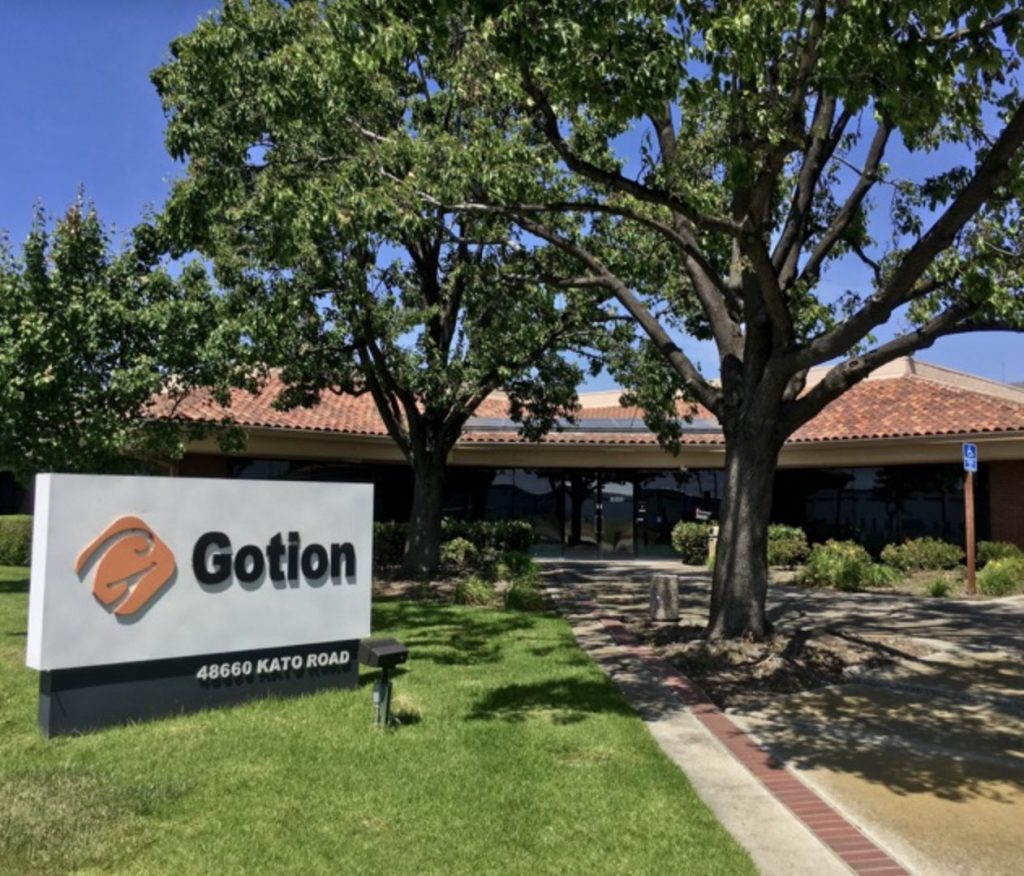
Gotion High-Tech Co Ltd, the US-established subsidiary of Chinese battery maker Guoxuan High Tech Co, principally engages in the manufacturing of lithium-ion power batteries and electric transmission and transformation businesses. The power lithium battery business of the company mainly includes independent research and development along with the production and sales of new energy vehicle power lithium batteries. Gotion’s main products include lithium iron phosphate materials and cells, ternary materials and cells, power battery packs, battery management systems, and energy storage batteries group.
Gotion is headquartered in Silicon Valley, California and 26.5% of the company is owned by Volkswagen. Gotion High-Tech is also Volkswagen’s partner in the strategic Unified Cell project. The company supplies its lithium-iron phosphate batteries to EV makers including Volkswagen and Tata Group.
The company increases both its R&D and production capacity investments. While it plans to construct a production plant in Michigan, USA by investing more than $3.5 billion; it also plans to increase the energy density of LFP batteries to 300 Wh/kg by 2030. The company that succeed to mass-produce LFP batteries with an energy density of 210Wh/kg in December 2021 is working to improve the performance of both the positive and negative electrodes of its batteries by boosting LFP energy density, which in turn can greatly expand electric vehicles’ driving range.

A spin-off of the Chinese automobile manufacturer Great Wall Motors (GWM), SVOLT develops and produces lithium-ion batteries and battery systems for electric vehicles as well as energy storage.
SVOLT is the first company to bring cobalt-free high nickel cell chemistry to volume production. The world’s first cobalt-free battery was unveiled by SVOLT at the Chengdu Motor Show in 2021. It was later put into scale production and put together in GWM’s ORA Cherry Cat. The company is headquartered in Jintan District, Changzhou, Jiangsu province in China. The home office of the European subsidiary SVOLT Energy Technology is in Frankfurt and the company recently announced its second investment worth €2.0bn in this country.
Apart from GWM, the owner and the biggest client with more than 90% of the installed capacity of SVOLT, the battery maker’s customers include Geely, Dongfeng Motor, Hozon Auto, and Leapmotor. SVOLT is ambitious to raise its total annual power battery production capacity to 600GWh by 2025.
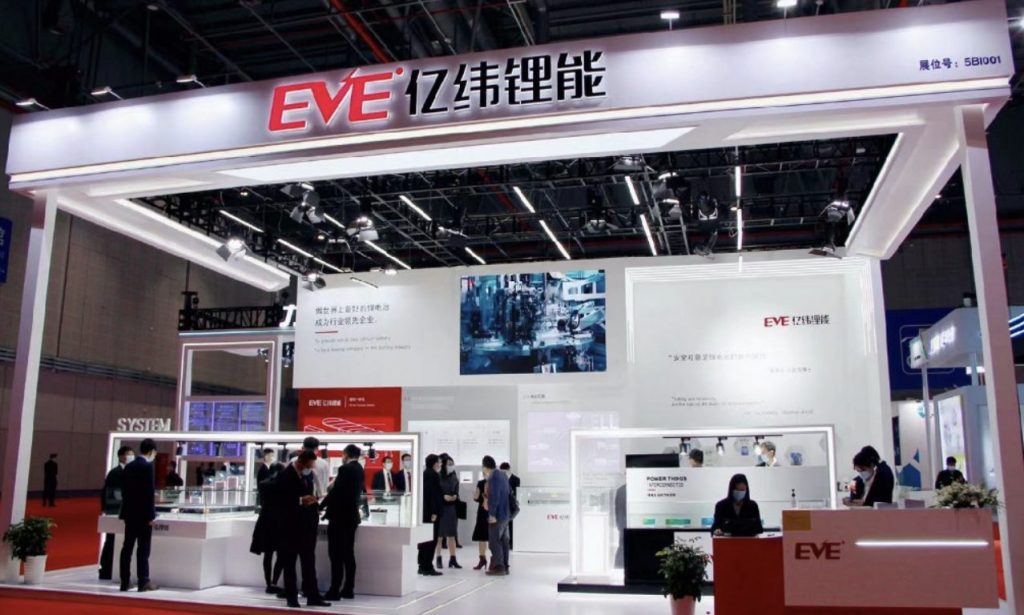
EVE Energy Co Ltd is a China-based company principally engaged in the development, manufacture, and distribution of battery products. The company’s main products include lithium primary batteries and lithium-ion batteries, among others.
Headquartered in Huizhou, Guandong; the Chinese company was founded by lithium-ion battery researcher Liu Jincheng in 2001. The company ranks eighth with a 2.3% market share in China, according to data from the China Automotive Battery Innovation Alliance. Currently, EVE Energy Co Ltd supplies its batteries to BMW, Daimler, Hyundai, Jaguar Land Rover, and XPENG in China.
Having all the production facilities in China, the company will construct two lithium battery production bases in Europe and Southeast Asia. The location for Europe will be Debrecen, Hungary, as announced by the company last March.
Allegedly, EVE has signed a contract to supply BMW with large Tesla-like cylindrical batteries in Europe. Already a supplier to BMW in China, this deal prompted the Chinese company’s announcement about the Debrecen plant in March, according to Reuters. BMW is also constructing a plant in the same city where it plans to produce EVs developed on its Neue Klasse platform.
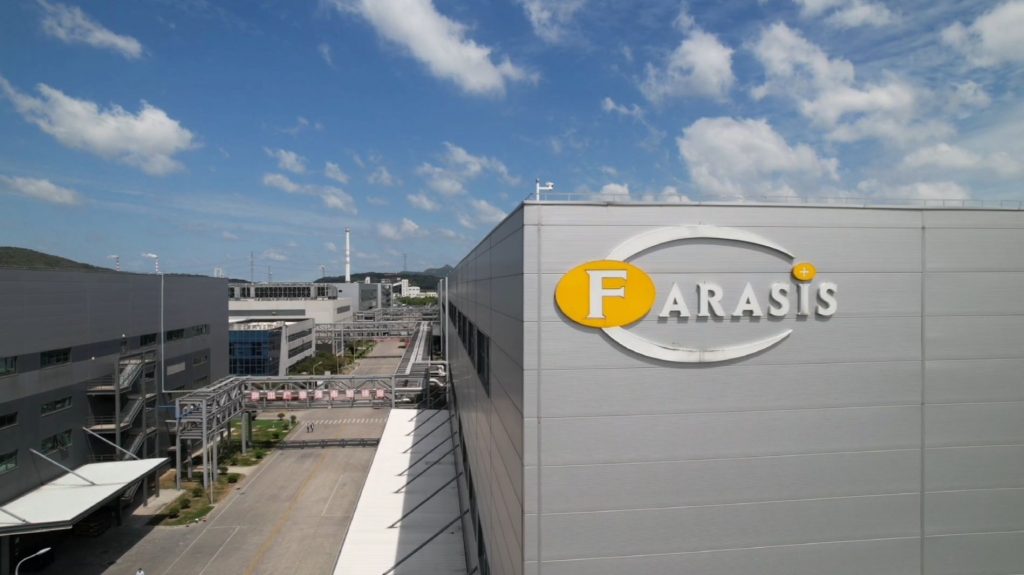
Farasis Energy Gan Zhou Co Ltd is a Chinese company that mainly engages in the research, development, production, and sales of lithium-ion power batteries for new energy vehicles and battery systems for complete vehicles. The Company’s main products are batteries, modules, and battery packs for ternary soft pack power batteries. Its products are used in new energy passenger vehicles, new energy special vehicles, and electric motorcycles.
The company was first founded in the US in 2002, by Dr. Yu Wang and Dr. Keith Kepler; with the aim of developing NMC, the most widely used battery at that time. In 2009 Farasis Energy was established in China, the largest electric vehicle market. Farasis currently has a 21 GWh annual production capacity.
The company reached a valuation of over $5 billion under the initial public offering in 2020, and Mercedes became Farasis’ strategic partner with a 3% turnout. The company is currently one of the largest manufacturers of pouch cells for EVs, with 3 global R&D centers located in Germany, China, and the US.
In recent months, Farasis unveiled a new battery cell variant with a fast charging time of fewer than 15 minutes at 300 Wh/kg energy density.

Northvolt was founded as SGF Energy in 2015 by two former Tesla employees, Peter Carlsson and Paolo Cerruti. In 2017, the company name was changed to Northvolt. After financial backing from European Investment Bank, and some other investors including commercial banks and potential European customers, Northvolt officially started construction of its first battery cell gigafactory in Skellefteå, northern Sweden in 2020. Swedish battery start-up is backed by big European companies such as Volkswagen, Volvo, Ikea, BMW, Scania, and Epiroc.
Northvolt last year became the first European company to produce a battery cell in Europe, at its gigafactory in Skellefteå in northern Sweden, a milestone as it seeks to grab a share of a market dominated by Asian battery makers such as CATL, LG Chem, and Panasonic. The company aims to have 150 GWh of annual supply capacity by 2030.
The Swedish group plans to build three gigafactories in Sweden and Germany, as well as a cathode manufacturing plant and a recycling facility. It has won $55 billion worth of orders from automakers including BMW, Scania, Volvo Cars, and VW.